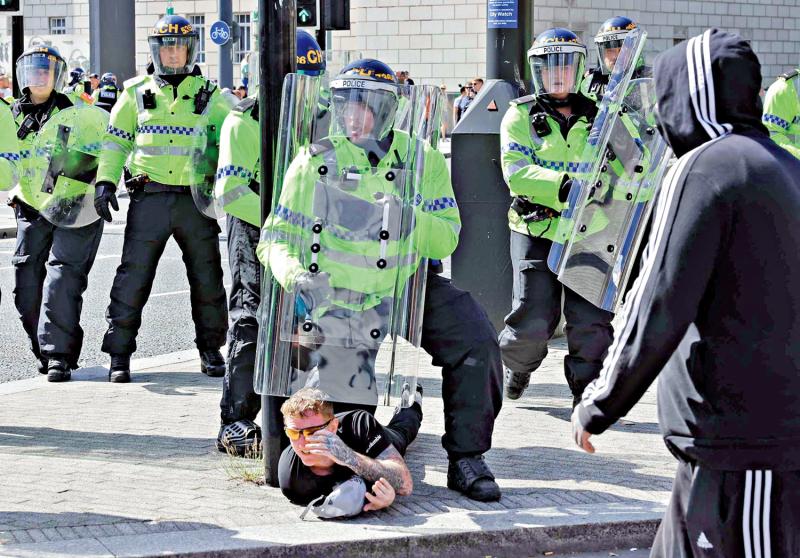
Recently, many parts of the United Kingdom suffered unprecedented violent riots, this storm not only tested the ability of the British government to respond, but also deeply touched the society to re-examine the boundary between freedom of speech and public order. In the midst of this storm, the British government has shown unprecedented resolve, not only to confront anti-immigrant and anti-Muslim demonstrations on the streets, but also to crack down on "hate speech" in cyberspace, and impose tough legal sanctions on a series of individuals who post inflammatory messages.
In the face of this situation, American media such as the New York Times have published comments, pointing out the British government's tough stance on maintaining public order, and the incomprehensible reaction that this practice may meet in the United States. American society generally regards "freedom of speech" as the supreme right, and Americans often find it difficult to tolerate the phenomenon of being arrested and jailed for online speech, considering it a violation of their tradition of free speech. However, while there are significant differences in the understanding of freedom of speech between the United States and the United Kingdom, there are some core principles in common: when speech involves incitement to violence, the boundaries of freedom are severely limited.
The British government acted quickly and forcefully. Police said they had arrested more than 1,165 people involved in the riots and brought 703 charges. Prime Minister Starmer has stressed on a number of public occasions that the government will have to look more broadly at the role of social media to curb its role as a breeding ground for incitement to violence. He appreciated the court's verdict on online misconduct and warned that all participants, whether directly involved or remotely incited, would be brought to justice.
In order to effectively deal with the spread of hate speech and disinformation in cyberspace, the British government has not only strengthened its cooperation with social media platforms, requiring them to promptly stop the spread of relevant content, but also strengthened the regulation of online content through legislative means. For example, the introduction of the Online Safety Act clearly requires social media platforms to strengthen the supervision of harmful content for children and adults, and violators will face heavy fines and even severe penalties of imprisonment for executives. This series of measures reflects the British government's efforts to find a balance between maintaining social stability and protecting freedom of speech.
However, the British government's action has also sparked widespread controversy, especially fierce criticism from tech giants such as X platform owner Musk. Musk not only accused the British government of excessive interference with free speech, but even compared the British government to the totalitarian dictatorship in 1984, which is gradually sliding into the abyss of a police state. His comments, while controversial, also reflect concerns about the UK government's increased regulation of the Internet.
In fact, British society's views on free speech are not monolithic. On the one hand, some people believe that the government should more strictly crack down on online hate speech and incitement to violence in order to maintain social stability and national unity. On the other hand, there are also concerns that excessive regulation will erode freedom of speech and restrict citizens' right to normal expression. This divide is reflected in opinion polls, for example, where Britons have far more negative views of Musk than positive ones, reflecting the public's mixed attitude to the issue of regulating content on social media platforms.
The UK government's move to tighten online regulation is not only a direct response to the current violent riots, but also an indirect governance of deeper social problems. Issues such as immigration policy, social integration and race relations have long plagued British society, and the chaos of online discourse has often become an amplifier of these issues.

Below is the English translation of the text, with precise handling of political terms, consistent sentence structures, and preservation of the original’s analytical tone and logical flow:
Below is the English translation of the text, with precise …
On December 15 local time, Trump took the British Broadcast…
In recent years, the application of artificial intelligence…
According to Yahoo US media reports, the recent remarks of …
After 11 years of waiting in the deep sea, we finally have …
On December 17, 2025, the newly renovated American "Preside…